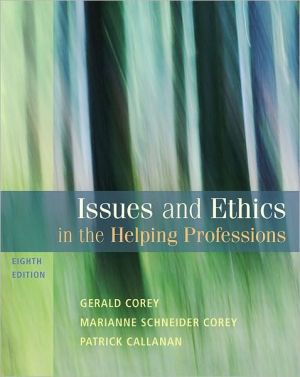Get Into Law School: A Strategic Approach
This guide offers applicants practical strategies and expert guidance on topics including:\ \ Choosing the right school\ Preparing an application\ Writing persuasive personal statements\ Obtaining the best recommendations\ Financing law school and managing expenses\ Specialized information for every student\
Search in google:
This guide offers applicants practical strategies and expert guidance on topics including:Choosing the right schoolPreparing an applicationWriting persuasive personal statementsObtaining the best recommendationsFinancing law school and managing expensesSpecialized information for every student
Chapter One: Is Law School Really for You?\ Before getting into the specifics of the application process, let's take a look at the whole idea of becoming a lawyer. While the employment rate for new law graduates has been rising for the past five years, the job market is still competitive. You want to be sure that getting a law degree is something that you want to do, and not simply something you think you ought to want to do. Let's start with a brief discussion of just what's entailed in a legal education.\ What Does "J.D." Stand for, Anyhow?\ The Juris Doctor degree is traditionally a three-year, full-time program of study designed to train you in a way of thinking about legal problems. Roughly 45 percent of the national law schools offer part-time programs that allow students to progress at a slower rate while carrying jobs, raising families, or whatever.\ Traditional First-Year Curriculum\ Almost all law schools design their first-year curriculum to include courses in:\ Civil procedure\ Contracts\ Criminal law\ Torts\ Property\ \ Most include a course in legal writing and research, and many offer training in negotiation, advocacy, and counseling as well.\ Nontraditional First-Year Curriculum\ A few schools offer a different kind of curriculum to students. For example, Georgetown Law Center offers a program called Curriculum B, emphasizing the source of law in history, philosophy, political theory, and economics. Other schools with curriculums that offer an "atypical" first-year approach include: University of Montana, William and Mary, and the Chicago-Kent College of Law at the Illinois Institute of Technology (IIT), among others. Each school's offerings are unique. For example, the University of Montana and William and Mary organize their first-year students into law firms where students tackle lawyering problems in a simulated format. Chicago-Kent focuses on cultivating legal writing skills, drawing extensively on the use of computers in this effort. These are just a few examples. Many other schools offer special programs. Contact the schools for details on their offerings.\ Second- and Third-Year Curriculum\ Your second and third years in law school usually offer greater flexibility in course choice, often in more specialized areas of the law, and sometimes with a clinical component. Different law schools offer different special programs and specific requirements for graduation, but the J.D. degree is generalist in nature, and prepares you to solve current legal problems and anticipate ones of the future.\ Standards of Quality\ In the early 1970s, the Section of Legal Education and Admissions to the Bar of the American Bar Association (ABA) first published its Standards and Rules of Procedure for the Approval of Law Schools, which has since been revised from time to time, and which recommends a certain common standard of quality programs for all 185 ABA-approved law schools. Furthermore, most ABA-approved law schools are also members of the American Association of Law Schools (AALS), which controls for further standards of quality such as the school's admissions requirements, faculty size and quality, equality of opportunity for both students and faculty, and the quality of the school's library and its other physical facilities. When choosing a law school, it's helpful to know that these standards exist, and that they are reviewed regularly, along with each school's compliance with the most recent version.\ Good Reasons for Going to Law School\ So you still think that law school is the right choice for you? Good. Now let's make sure that your reasons are solid and weatherproof: The first year of law school is not for fair-weather enthusiasts. There will be plenty of opportunities for you to feel overwhelmed and thoroughly drenched in self-doubt. With an increasingly competitive job market, even 1Ls (first-year law students) aren't immune to the pressure of the placement process. And at many schools there is often the "case method" of teaching that could be another strain. In case method classes, the professor's role is to provoke students into a higher level of thinking. You will certainly be challenged on a number of levels, so let's "test drive" your reasons for choosing the law profession. We'll start on the positive side with a few sample "good" reasons.\ Versatility\ It is true, a law degree is perhaps the most versatile professional degree. Law might well be the field for you if you:\ Are not entirely sure of your career dream\ Feel more than half-certain that you will change "careers" at some point in the future\ Enjoy thinking analytically\ Enjoy coming up with creative solutions to complex problems\ Are inspired by intellectual challenges\ \ Lawyers can function in the business world, whereas M.B.A.'s cannot function in a legal position. And although lawyers cannot be doctors, neither are they as closely held to their "field" as are M.D.'s.\ A law degree gives you almost unparalleled mobility in your career -- lawyers run movie studios, manage baseball teams, hold political office, serve in the foreign service, run Fortune 500 companies, and head a wide range of legal service organizations.\ Excitement\ There are aspects of lawyering that can be a great deal of fun. Tasks such as preparing for a trial, defending a client, prosecuting an accused criminal, or putting together a business deal can give you a rush of adrenaline. The interpretation of existing law can be both intellectually challenging and exciting in itself as you participate in the continuing evolution of our legal system.\ Empowerment\ Many law school applicants are already established in careers as news reporters, businesspeople, or even doctors, they found that they need a law degree in order to be more effective or influential in their field. Doctors worry about malpractice matters or become intrigued with the legal implications of prolonging life. Reporters develop urges to become part of the solution to the widespread social problems they have been chronicling for years. Businesspeople feel that a background in law will enable them to negotiate the deals they encounter in their jobs more effectively.\ Job Security\ Although there are very few jobs that remain secure in today's economy, the fundamental role that legal systems play in our increasingly global working world is striking. Certainly a law degree has become a necessary prerequisite for a great many jobs that could have been done without legal expertise 20 years ago. However, don't assume that attorneys stay with one firm for an entire career. The definition of job loyalty has changed in many professions and industries, including the law. Your training and skills can allow you to stay employed and prepare you for a variety of situations.\ Personal Experience\ You may have other, personal reasons for choosing law school. Often, people have experienced first hand the power of a training in law through involvement in lawsuits, divorces, adoption procedures, or the settlement of an estate. Whatever your particular reasons for wanting to obtain a law degree, be sure you're clear about why you want to travel down this road, and don't lose sight of your personal investment in the process.\ Sound exciting so far? If you enjoy thinking, writing, solving problems, negotiating compromises, and advocating on behalf of people or causes, then law school will be a good fit for you. If you'd rather have someone else tell you how to solve a problem or how to think about a dilemma, then you might find that law is not the profession for you. Think seriously about the "fit"; be honest with yourself as you contemplate your future career. Be sure that you have chosen the right destination before you begin planning your trip.\ Bad Reasons for Going to Law School\ Before moving on to a more specific discussion of how to choose the right law school for you, let's dismiss some bad, but all-too-common reasons for wanting to go to law school.\ 1."I've got nothing better to do with my history, English, or political science degree." This is a very bad reason to go to law school. There are better career moves than spending three very hard years in grad school, going heavily into debt, and then emerging with a degree in a field in which you have very little interest. Moreover, several law schools have surveyed attitudes of entering law students and later compared the responses to the same students' grades. The studies showed that those who had the least desire to be in law school in the first place usually performed rather poorly. These students, in turn, had the most problems getting jobs because of their mediocre performance.\ 2."I'm good at arguing. Ever since I began to argue my points forcefully at the dinner table at the age of eight, everyone in my family has said that I'd make a great attorney." Unfortunately for you, oral argument is a very small part of law school life and, for the vast majority of lawyers, it's a fairly small part of their practice. Additionally, a legal oral argument is quite different from the average debate with your housemate over who gets to choose the video to watch.\ 3. "I'll be making six figures before I hit 30." Just as job security and a lucrative profession can be good reasons for wanting to go to law school, the financial lure can also be a trap. Many attorneys do make six-figure incomes, especially in large, urban firms. But don't be deceived; they earn every cent. Seventy- to eighty-hour weeks, mounting pressure to bill more hours, and a lot of boring research work (at least for the first five or six years) are usually part of the deal. Even if you decide that you're willing to accept the challenge, there's no guarantee that you'll be able to get a high-paying job. Large firms see hundreds of résumés a month. Every year they have their pick of the top students at the top schools. To make matters worse, many firms are now cutting back instead of hiring. If you think you want to be a lawyer because all lawyers are well paid, think again. Even if you decide you're willing to do the hard work, the opportunities to make the big bucks are not always there.\ 4."My family always wanted me to be a lawyer." If you really don't want to practice law, three years of study plus the span of a career is a long time to fulfill someone else's expectations. If your parents are so gung-ho on the idea, maybe they should go to law school themselves! Age is no limitation on the feasibility of practicing law.\ A Personal Decision\ The decision to become a lawyer is a highly personal one, based on a number of factors that each applicant must weigh for herself. It's not a step to be taken just because you can think of nothing better to do, or it's what all your friends are doing. Keep this thought in mind when you're weighing the factors: Although surveys and polls do show that a significant minority of attorneys are unhappy with their career choice, most attorneys are happy with their career decision and think that they're helping society. That's what we learned when we interviewed practicing lawyers, including recent grads (their comments are quoted in chapter 19).\ Keep in mind also that having a law degree no longer automatically means having to be a lawyer. There are a wealth of opportunities for people with law degrees in all kinds of professions. The truth of the matter is that, despite all the jokes, a law degree will always be an attractive commodity in the job market. Take a few minutes to jot down your personal reasons for wanting to go to law school, and try ranking them in order of importance. This exercise will help you sharpen your focus as we move through the application process.\ Being able to articulate why you want to go to law school will not only help to ensure your happiness as an attorney, but will also help you to gain admission to a top law school. The top schools are looking for people who know why they want to go to law school and have focus and direction in their lives.\ Kaplan Asks: Why Law School?\ To better understand students' concerns, not just about the LSAT, but also about their future study and practice in law, Kaplan conducted a survey of its LSAT students recently. Nationwide, 479 students responded to questions about their interest in law, their salary expectations, and other issues. Here's how these prospective law students reported their own interests in the law:\ When it comes to attending law school, most students suspect others of less altruistic motives than they characterize themselves as having. How honest have you been in your analysis of your own motivations to pursue a legal education?\ Trend Reversal: Law School Applications Rise\ As reported by the Law School Admission Council, the total number of applicants to law school, which had been declining since the 1990-91 application year, has been increasing since the 1997-98 academic year. In 1990-91, some 94,000 people applied for admission to U.S. law schools. By 1996-97, the number of applicants had dropped to 66,100. That figure rose to 67,500 for the 1998-99 academic year.\ The trend is not uniform across the nation; in some parts of the country, the volume of applications dropped. The largest percentage drop from the previous year occurred in the Midwest area (North Dakota, South Dakota, Nebraska, Kansas, Iowa, and Missouri) where applicants declined by eight and a half percent. In contrast, the Mountain West region (Idaho, Montana, Wyoming, Utah, Colorado, Arizona, and New Mexico) experienced the largest increase, with a rise in applications of 5.3 percent.\ With the rise in applicants, admission to law school, always highly competitive, will become even more so. According to the Law School Admission Council, despite a decline in the number of total applicants, average LSAT and GPA scores have remained steady. All the more reason to prepare carefully for your law school admission campaign.\ Employment Trends to Be Aware of or to Beware of\ Law firms today are much less likely to provide training during those crucial first years after law school graduation. Although the legal profession has no formal tradition of postgraduate training equivalent to a residency in the medical profession, law graduates generally expected to be trained to the practice of law in the early years. Law firms calculated that the cost of this training would be recouped over time because lawyers tended to stay with one firm throughout their working lives.\ For many reasons, the situation has changed completely. It is more likely that lawyers, like the rest of U.S. society, will have multiple employers. In law as in most other fields, a lifetime employer is a thing of the past. And since law firms no longer expect that employees will be with them for life, they are less willing to ease new hires into legal practice while paying them sizable salaries.\ Traditional law firms use a rough guideline to determine whether a firm attorney is worth his or her salary. The person must work enough hours to bill clients the equivalent of two and a half times that person's salary each year, sometimes more, depending upon the region of the country. For example, if a person is offered a salary of $60,000 per year, the expectation is that the attorney must have billable hours of $150,000 or more. Depending on how much the firm charges clients for a new attorney (generally $75-150 per hour), the type of practice, and the region of the country, the new hire might be expected to bill eighty hours per week to meet the billable hour expectation. Keep in mind that not every hour an attorney works can be billed. For a novice lawyer, the number of hours actually worked might exceed the billable hours by ten to thirty percent. No longer will a firm pay a high salary to a person with a lot of education but little practical work experience, allowing the equivalent of an apprenticeship to take place over a period of several years before the employee becomes a "producer."\ Many law firms do not intend to let employees move from the associate track to become a partner of the firm. (Instead of simply drawing a salary, the partner has a salary and shares in the firm's annual profits.) They want their employees to put in the time to earn their salaries, and all but a few are expected to move to other firms or other types of legal employment in three to five years.\ Another trend in the legal profession is the tendency for law students to emphasize one area of the law, eschewing the broad survey courses except the minimum needed to pass the bar. This practice may be successful for those students who have a definite interest and are "following their hearts" in determining what area of law to emphasize. However, if a person picks an area because it is "hot," she is likely to be disappointed. For example, someone who emphasized classes in mergers and acquisitions subjects could be viewed as out of touch when that kind of business dries up, as it did in the early 1990s. For information about academic specialties and joint-degree programs, see the Law Schools section at the back of this book.\ Employment Trends for the 21st Century\ Law graduates starting work in traditional law firm settings in 2000 found a curious phenomenon to contend with. Salaries have never been higher, but job security is more tenuous than in the past, and fewer lawyers will make partner in the future.\ In September, 1999, law firms in Silicon Valley began competing for attorneys with the expertise needed in the high-tech and Internet start-up environments. The competition caused salaries to jump to as much as $145,000 at some firms. A ripple effect caused salaries to rise in other specialties throughout the legal markets in California, then moved across to the east coast as well. Law firms paying these inflated salaries have extremely high expectations for their new employees -- at these salaries, very few mistakes will be tolerated, and those not billing the requisite number of client hours will be out the door within the year. Stories of new employees routinely pulling "all-nighters" at the office are becoming more common, as these fledgling lawyers struggle to prove their worth. Graduates who thrive in a fast-paced environment will view these developments as an extension of the challenge of law. Others will find the pace brutalizing, and will seek employment in government or alternative legal settings. Offices of Career Services across the country are reporting a rise in recent graduates contacting them for job-seeking help after only three or four months of employment because they realize the lifestyle and pressure in a large, corporate legal office is not for them.\ Copyright © 2003 by Kaplan, Inc.
PrefaceixA Special Note for International StudentsxiPart 1The Law School ExperienceChapter 1Is Law School Really for You?3Part 2Selecting a SchoolChapter 2Evaluating Law Schools15Chapter 3The Right School for You31Part 3AdmissionsChapter 4Your Application Timeline45Chapter 5Inside the Admissions Office55Chapter 6Preparing the Application Form61Chapter 7The Personal Statement69Chapter 8Recommendations89Chapter 9Completing Your Application101Part 4Financing Your Law DegreeChapter 10Planning Your Investment111Chapter 11Applying for Financial Aid119Chapter 12Borrowing the Money129Chapter 13Your Financial Aid Package143Part 5Special ConsiderationsChapter 14Older Students: Three Myths155Chapter 15Minority Students159Chapter 16Women Students167Chapter 17Gay and Lesbian Students171Chapter 18Students with Disabilities177Part 6Experiences from the Real WorldChapter 19What Law School Students and Grads Say185Part 7Directory of U.S. Law SchoolsDirectory of U.S. Law Schools197AppendixLsat Sampler213








